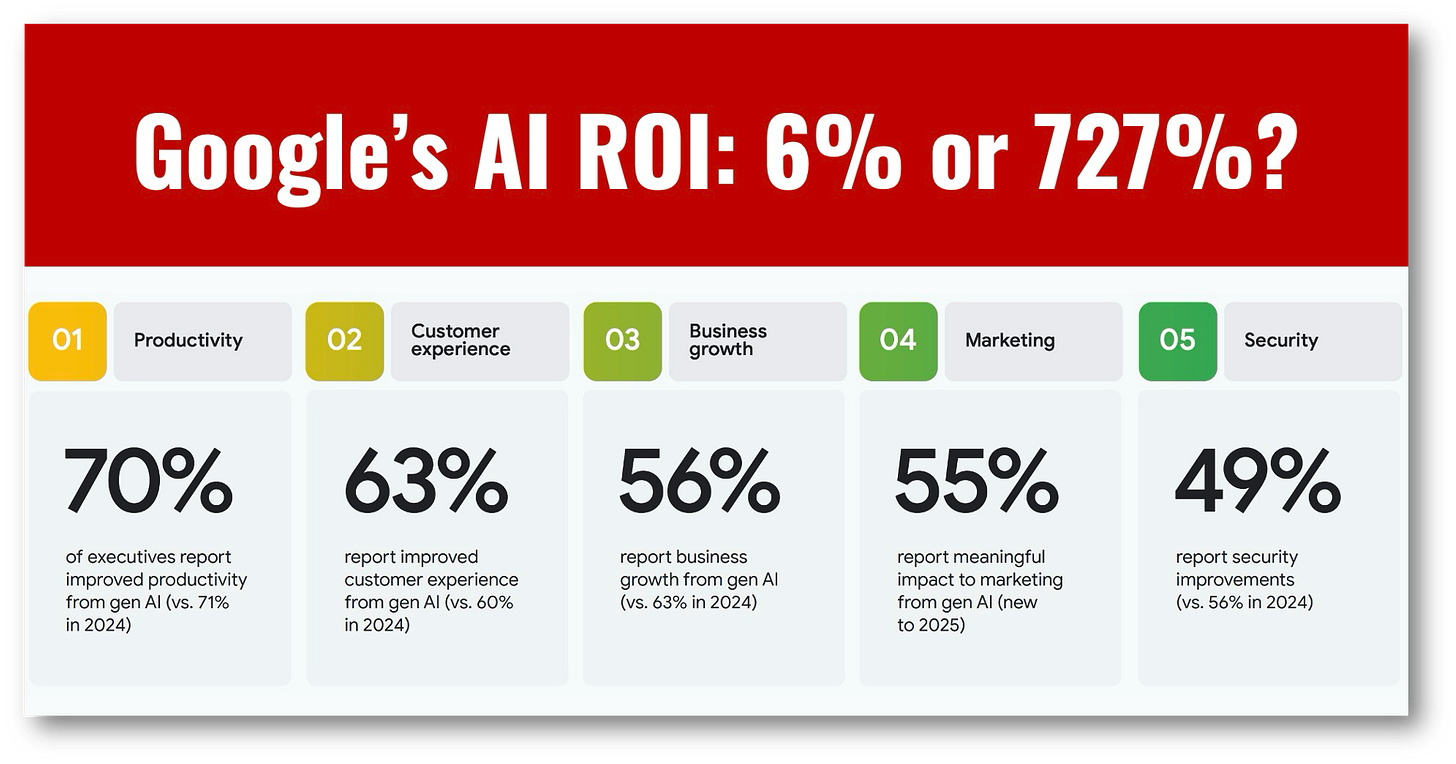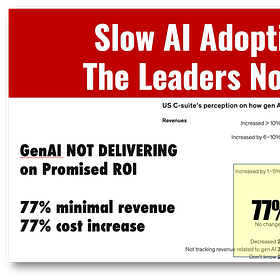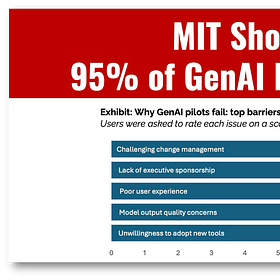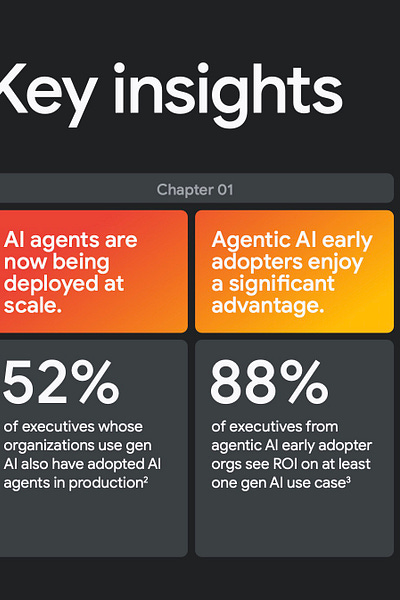This is my daily post. I write daily but send my newsletter to your email only on Sundays. Go HERE to see my past newsletters.
Google's survey of AI users reports ROI figures for AI that range from a credible 6% to an absurd 727%.
I am a firm believer that AI will start turning out reasonable returns soon for many companies.
That said, when presented with numbers that are too good to be true, I think I owe it to myself and my readers to take a second look.
Let’s start with examining the more credible of the two figures, where Google reports that 53% of executives reporting increased revenue cite 6-10% revenue growth from generative AI.
This figure seems credible even if it’s optimistic compared to McKinsey’s survey of the C-suite from February that found a far more muted return on AI:
“77% of surveyed C-suite saw a drop in revenue or a maximum increase of 1-5% after adopting GenAI systems.”
Google is reporting direct results from its survey, even if optimistic, it is good news for us all!
Even if Google’s ROI figures are not industry-specific and too generalized, they do show how AI can or will be profitable.
Now on to the number that stretches credibility, with Google reporting a “727% ROI achieved over three years on average by businesses with Google Cloud.”
Google wouldn’t lie to us, would they?
Well, let’s not call it a lie, but Google didn’t take this number from its survey results.
Instead, it stretched paid research by IDC referenced in the fine print to the limit.
IDC didn’t find a direct ROI on GenAI use from a survey.
Instead, it conducted interviews where it "calculated" what it considered its customers’ annual benefits to be.
These are not direct client-reported ROIs!
So is IDC’s calculated three-year ROI of 727% believable?
Probably not!
The only way to know is to see if those interviewed agree with the numbers.
I don’t doubt that the ROI on AI will increase every year, and about half of current users are ROI positive.
That result is significant, so spare us the inflated number that only serves to over-hype AI, which ensures it will under-deliver.
👉Takeaways
🔹 Second-annual ROI of AI Study highlights a new group of 'agentic AI early adopters' achieving higher returns in agentic AI use cases, including those related to customer experience, marketing, security, and software development
🔹 More than half (53%) of executives reporting increased revenue cite 6-10% revenue growth from generative AI, a figure holding steady year-over-year
🔹 As AI investment increases, executives' top concern is now privacy and security when choosing LLM providers
The Rise of AI Agents
🔹 Agents proliferating fast: More than half (52%) of executives report their organization is actively using AI agents, with 39% reporting their company has launched more than ten.
🔹 The early adopter advantage: A distinct group of "agentic AI early adopters," representing 13% of executives surveyed, indicate their organizations are dedicating at least 50% of their future AI budget to AI agents and already have agents deeply embedded across operations. 88% of these leaders report their organizations are seeing ROI from generative AI on at least one use case, compared to a 74% average across all organizations.
🔹 Higher rates of ROI: These early adopters are consistently more likely to report seeing ROI on agentic AI use cases. These include enhancing customer service and experience (43% vs. 36% average), boosting marketing effectiveness (41% vs. 33% average), strengthening security operations (40% vs. 30% average), and improved software development (37% vs 27% average).
Related stories:
Slow AI Adoption: Blame The Leaders Not AI's Poor ROI?
McKinsey must be way behind in its AI consulting revenue as it is now blaming senior management for the delay in its AI payday:
MIT Shocker: 95% of GenAI Pilots Failing
This is my daily post. I write daily, but send my newsletter to your email only on Sundays. Go HERE to see my past newsletters.
HAND CURATED FOR YOU
🚀 Every week I scan thousands of articles to find only the best and most valuable for you. Subscribe to get my expertly curated news straight to your inbox each week. Free is good but paid is better.






